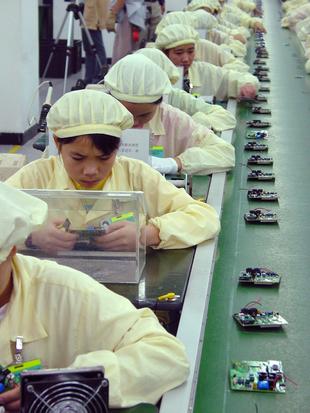
Affiliates to Electronics Watch have access to an extensive international network of monitoring organisations that conduct worker-driven monitoring, with the goal of strengthening workers’ own voices to report on and address labour and safety issues in their factories.
The premise of worker-driven monitoring is that workers are the best monitors because they are on site all day, every day. They know the process and problems of normal operations; they have ideas for resolving safety and labour rights problems; and they can verify whether corrections are implemented and actually work. In this monitoring model, workers are active. They bring attention to problems and can initiate investigations and remedial activities.
Electronics Watch monitors are civil society organisations in electronics producing regions that conduct worker-driven monitoring and meet the following criteria:
- Experience and expertise. They must have expertise in several of the following areas: international, regional and national labour law; labour issues in the electronics industry; occupational health and safety; audits of financial and personnel records; worker interviewing; gender sensitivity; operating independent hotlines or complaint mechanisms; and following up on worker complaints.
- Ongoing relationship of trust with workers in electronics factories. They must be able to meet with electronics workers in safe settings where workers can share information about workplace hazards and rights violations without fearing employer retaliation.
- Independence from the industry. They can have no direct financial support from any company that will be monitored by Electronics Watch, and there can be no industry representatives involved in decision-making or in any other capacity that could create a conflict of interest.
Why worker-driven monitoring?
Detect harms: Worker-driven monitoring is particularly important to detect harms to vulnerable workers and breaches that are hard to measure. For example, forced labour is often hidden from social auditors. Social auditors may not look closely at subcontractors or temporary work agencies that make use of forced labour or take advantage of the vulnerability of migrant workers. In addition, people who work under the menace of a penalty—that is, in forced labour conditions—have few rights and fear reprisals against themselves and their families should they report abuses.
Breaches of the freedom of association may also remain hidden from social auditors. For example, an incident that took place several years ago—workers fired for organising a union—may continue to create a climate of fear and uncertainty among workers who want to form a union today. But this incident is nowhere recorded and therefore not apparent to social auditors. Workers will also remain silent if the employer has warned them they will lose their jobs if they voice complaints. In these situations, local civil society organisations with longstanding and ongoing relations with electronics workers are in a better position to detect breaches than social auditors.
Ensure remedies for workers: Worker-driven monitoring may also be important to ensure proper remediation of breaches. In some cases—such as incidents of discrimination—remediation may require a long-term process that involves compensation to workers who have suffered harm as well as educational and other activities to prevent recurrence. In other cases—such as fire hazards or other imminent dangers to workers—swift action is needed. Local civil society organisations with close relationships to workers are often better able to react quickly to issues that must be addressed promptly than social auditors and to stay engaged over a long period of time, when needed, to oversee the process of remedying long-term breaches.
Create sustainable change: Finally, sustainable change depends on workers’ ability to monitor and report problems and also propose solutions. If an aisle is blocked and fire exit locked one day, then cleared up and unlocked when social auditors visit, it may be blocked and locked the following day or the following month when the factory receives a new urgent order from an important customer. Auditors would not know that the problem has not been solved unless they happened to visit on the right day, but workers do. They can report to their local civil organisations if corrective action is sustained or not, and help ensure that the root causes of breaches are addressed.

